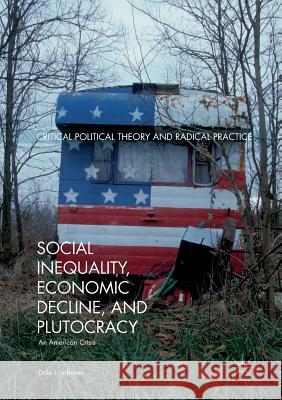Social Inequality, Economic Decline, and Plutocracy: An American Crisis » książka
topmenu
Social Inequality, Economic Decline, and Plutocracy: An American Crisis
ISBN-13: 9783319840758 / Angielski / Miękka / 2018 / 274 str.
Kategorie BISAC:
Wydawca:
Palgrave MacMillan
Seria wydawnicza:
Język:
Angielski
ISBN-13:
9783319840758
Rok wydania:
2018
Wydanie:
Softcover Repri
Ilość stron:
274
Waga:
0.34 kg
Wymiary:
21.01 x 14.81 x 1.5
Oprawa:
Miękka
Wolumenów:
01
Dodatkowe informacje:
Wydanie ilustrowane











